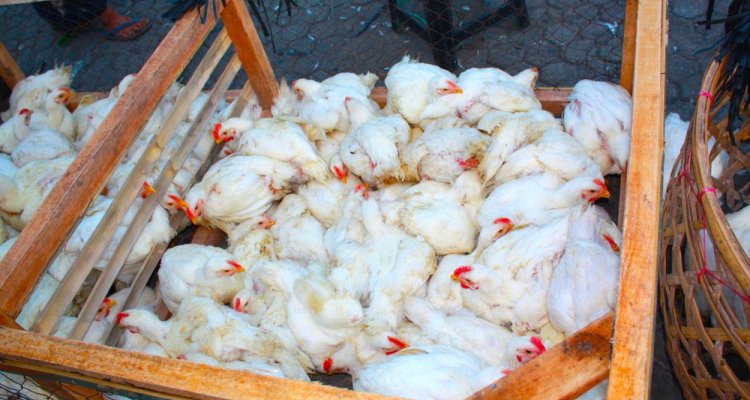
Impact story
Fighting avian influenza in Indonesia
Highly pathogenic avian influenza (HPAI) is a major problem in Indonesia. The economic damage is enormous; smaller farms suffer from one or more outbreaks per year, sometimes more than half of the chickens die. People also regularly become infected and sometimes die from the effects of avian flu (a zoonosis). ‘And there is always the risk of an Influenza variant popping up that claims much larger numbers of human victims,' says Henk Hogeveen, professor at the Business Economics (BEC) group.
Chicken is an important source of protein for the Indonesian population. Moreover, the poultry sector is an important economic factor on which many people depend. All in all, reason enough to try to get the bird flu problem under control. Unfortunately, since the beginning of this century, the efforts of the Indonesian government, with the help of NGOs, to deal with vaccination and the culling of infected farms have had too little effect. HPAI is still endemic in Indonesia.
'With our business economics lens we went to see why the approach taken so far does not work', says Hogeveen. Research into a better approach has so far focused rather one-sidedly on the veterinary aspects, i.e. the prevention of transmission. But socio-economic aspects also play an important role. 'That's why we mapped out those aspects in our research: we looked at the whole complex of parties and stakeholders that make up the chain and at the factors, mechanisms and dependencies that play a role. Step by step - using both economic simulation models and participatory farmers oriented research - we identified which decisions the parties in the chain take and why they take those decisions.'
Without strict hygiene measures such as disinfecting crates in which chickens have been transported, you won't be able to contain bird flu.
Sick chickens
'An important and relevant outcome of our research, for example, is that there is a large market for sick chickens in Indonesia', says Hogeveen. 'Sick chickens still have a nice value. Unlike in the Netherlands, where we buy chicken per unit weight, in Indonesia you usually buy a whole chicken. Chickens that are skinny, because they are sick, can be sold very well. In fact, many consumers prefer to buy a lean chicken rather than a fat chicken because they are afraid that harmful growth hormones have been used in fat chickens.'
The government will have to tackle this market for sick chickens in order to get a grip on the spread of bird flu, says Hogeveen. The same applies to the hygiene surrounding the transport of chickens in crates. 'With strict hygiene measures such as disinfecting crates in which chickens have been transported, you won't be able to contain bird flu. But then you have to build in incentives, so that the parties involved are also motivated to start working on it.'
The crux is to change structures and economic mechanisms in such a way that people are motivated to work on hygiene and the prevention of disease.
Large informal economy
The research carried out by Wageningen's business economists has provided important insights for the poultry sector and governments in Indonesia to prevent and contain the bird flu outbreaks. 'The veterinary authorities, for example, are now paying much more attention to biosecurity in their information, where in the past only vaccination was considered', says Hogeveen. In any case, it remains an enormous task to get this on track in a country with such a large informal economy. 'There is an awful lot of technical knowledge available about the bird flu virus and how we can prevent it from spreading. The crux, however, is to change structures and economic mechanisms in such a way that people are motivated to work on hygiene and the prevention of disease. We are contributing to that with our research.'